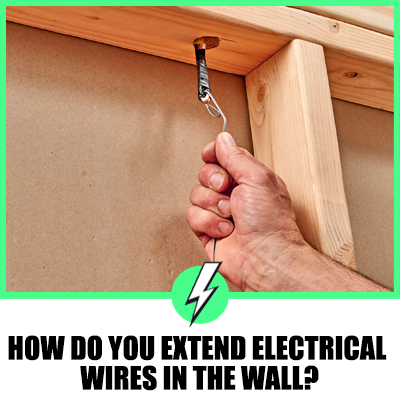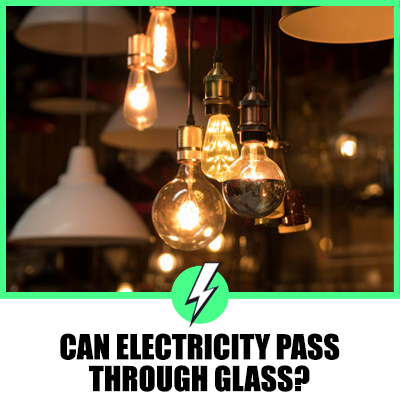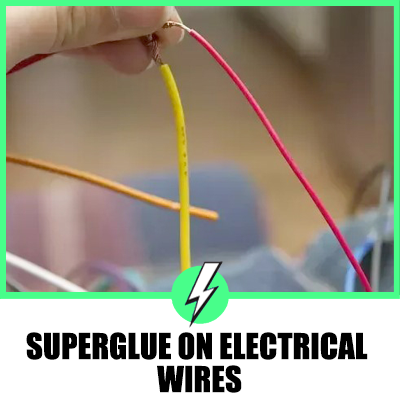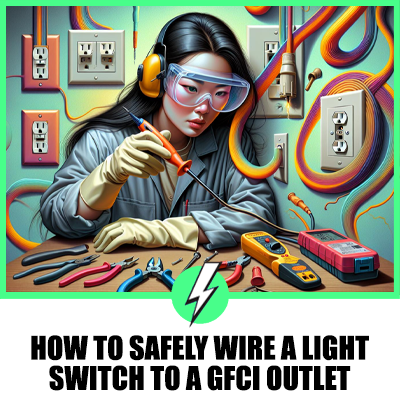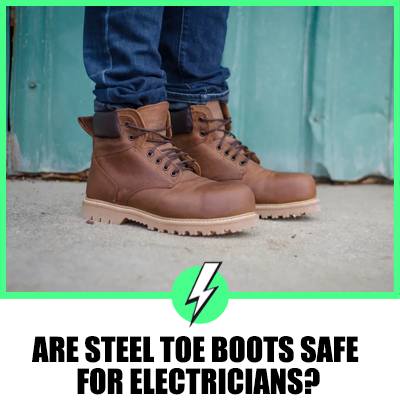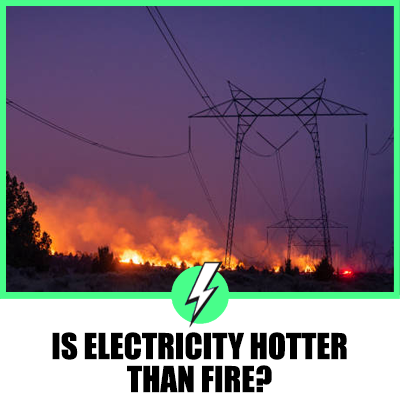Outdoor Junction Box For Armoured Cable
Do you need to have a junction box for armoured cable outdoors? Can you just use terminal blocks, wrap them in a waterproof material, and hide them?
Yes, you need outdoor junction boxes to run lighting or water pumps in your garden. If you check BS7671, it will outline the procedure for terminating cables in an outdoor environment. No, you can’t use terminal blocks wrapped to keep water and dust out. That would be an accident waiting to happen.
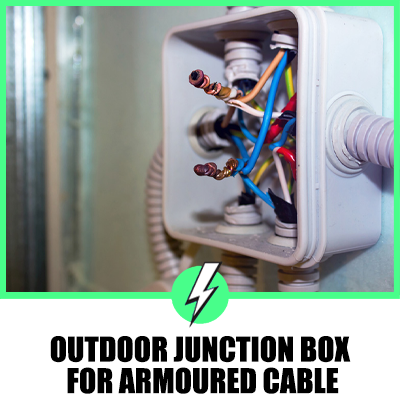
Contents
Can you join armoured cable outside?
Yes, you just need to correct components to make a secure and moisture-free connection.
There are many boxes available for terminating armoured cable in your garden or outside your home. The boxes are usually plastic, so they are non-conductive and have an IP rating suitable for the box’s environment.
One such box that is recognised as a game-changer is the Wiska junction box, but there are plenty to choose from, all with similar characteristics.
Can I install an outdoor light without a junction box?
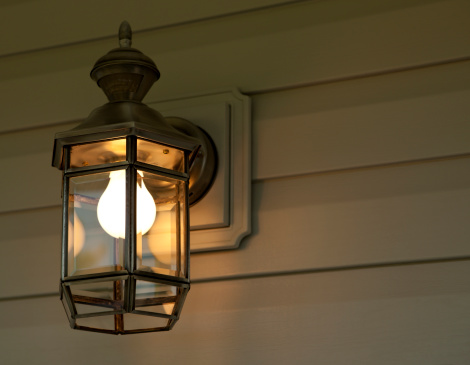
Yes and no. Let’s explain. If you are mounting an external wall light, you can normally bring the cables through the wall and into the back of the outdoor wall light.
The wall light will have an IP rating, so there is no need to worry about moisture or dust ingress.
Now, if you are installing a light in your garden from an armoured cable, say one light every 2 metres around the periphery of your garden, you will need to use a junction box.
Why do you need to use a junction box in the garden or outdoors?
There are a few reasons to consider. How will you make a safe, secure junction without the correct box? How will you prevent water and moisture from entering the termination? How will you apply earth to the junction for safety?
Junction boxes give all the answers to the questions. You can make a secure connection. That’s the purpose of the box. You can keep water and dust ingress out of the box. They have an IP rating. You can earth the box using the terminal provided or the brass CPC connector plate in the case of the Wiska box.
Do you need special glands to enclose the armoured cable?
Yes, it is best to use a storm gland for outdoor use. The storm gland has a tough polymer outer and brass inner to make a good connection with the earth ⏚.
The glands screw directly into the junction box but are fitted with a series of gaskets and ‘O” rings to keep the IP integrity of the junction box.
When used in conjunction with the Junction box, the glands and the box make an almost impenetrable enclosure that is safe and secure.
What is an IP rating?
Ingress protection. Ip ratings are given to components that need to be certified to meet a certain standard that prevents dust and water ingress. This is crucial when dealing with electricity as both can be dangerous and even fatal in the case of moisture or water ingress.
The below tables show the parameters for the IP protection:
| First Digit | Intrusion Protection | Second Digit | Moisture Protection |
| 0 | No protection. | 0 | No protection. |
| 1 | Protected against solid objects over 50mm, e.g. accidental touch by hands. | 1 | Protected against vertically falling drops of water, e.g. condensation. |
| 2 | Protected against solid objects over 12mm, e.g. fingers. | 2 | Protected against direct sprays of water up to 15 degrees from the vertical. |
| 3 | Protected against solid objects over 2.5mm, e.g. tools & wires. | 3 | Protected against direct sprays of water up to 60 degrees from the vertical. |
| 4 | Protected against solid objects over 1mm, e.g. wires & nails. | 4 | Protected against water splashed from all directions, limited ingresses permitted. |
| 5 | Protected against dust limited ingress, no harmful deposits. | 5 | Protected against low-pressure jets of water from all directions, limited ingress permitted. |
| 6 | Totally protected against dust. | 6 | Protected against strong jets of water, e.g. on ships deck, limited ingress permitted. |
IP protection starts at zero and ends at IP69k, here is a snapshot of the most commonly used IP rated enclosure and junction boxes in the domestic electricity industry
| IP65 | Protected from total dust ingress. | Protected from low-pressure water jets from any direction. |
| IP66 | Protected from total dust ingress. | Protected from high-pressure water jets from any direction. |
| IP67 | Protected from total dust ingress. | Protected from immersion between 15 centimetres and 1 metre in depth. |
| IP68 | Protected from total dust ingress. | Protected from long term immersion up to a specified pressure. |
| IP69K | Protected from total dust ingress. | Protected from steam-jet cleaning. |
The junction box you will use in your garden is normally rated as IP68, not that you would ever immerse the junction box in water. But for some folks, floods are a reality, even if infrequent, and this box would sustain its integrity in a flood situation.
However, it is more likely that the junction box will be sprayed inadvertently by a hose or garden sprinkler. The IP rating gives the homeowner peace of mind no harm is being done to the cables.
Is CPC the same as earth?
Yes and no. Many would consider the CPC to be the earth, and in many respects, you would be a right bit the term CPC is used when a number of bonding earth are used in which your junction box is just one of two or three.
Can you run an armoured cable above ground?
Yes, it’s commonplace to see armoured cable clipped to a fence at a high level. This avoids the possibility of the cable being damaged while gardening.
Running the armoured cable along a fence is a good idea if you have a young family. It takes away trip hazards and prevents inquisitive fingers from pulling on the cable.
Can you bury the armoured cable?
Yes, The company that supplies electricity to your home (DNO) runs armoured cable underground to all your homes.
You can bury it at the back of flower beds or even under a lawn, so it’s never disturbed.
